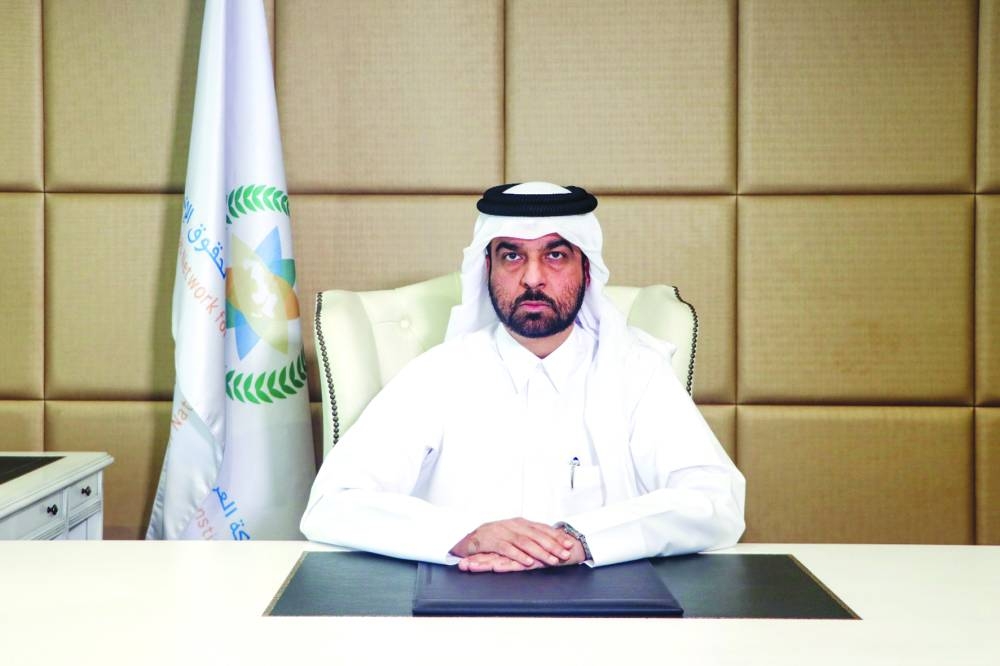HE the Secretary-General of the Arab Network for National Human Rights Institutions (ANNHRI), Sultan bin Hassan al-Jamali, has said that the Israeli occupation violated the right to education, guaranteed by all international and regional conventions and treaties, in the Gaza Strip and all of the occupied Palestine.
In a speech during the regional dialogue forum on the future of education and education on human rights in the Arab region held in Cairo, al-Jamali called for concerted efforts to achieve a better future of education for future generations, including educating them on human rights, accepting the opinion of the other, and educating on dialogue as a way to resolve differences, noting the role of national human rights institutions in providing support and co-operation with stakeholders to protect the right to education by providing advice to governments, contributing to the national review of curricula to integrate human rights concepts into them and refining them from hate speech, and introducing the discourse of tolerance, dialogue and peace, in addition to co-operating with governmental institutions and civil society to spread the culture of human rights.
Achieving this, he added, requires reviewing legislation to ensure its compatibility with human rights principles and standards stipulated in international agreements to which countries have accessed, participating in programmes to build and raise the capabilities of those responsible for education, to integrate human rights concepts and values into their curricula, policies and practices, monitoring, preparing and publishing national, international reports and interacting with treaty bodies by following up on the implementation of their recommendations and submitting shadow reports on the reality of the rights protected by these treaties, including those related to education.
He explained that the strategic plan of the Arab network stipulated the dissemination of the culture of human rights, and the issue of human rights education. The future of education were also highlighted in the recommendations of a number of the Arab network's conferences and its general assemblies, stressing the role of national human rights institutions in implementing and following up on the implementation of the 2030 sustainable development goals, including the fourth goal on education, by focusing on implementing Goal 16 as it is the key to implementing the 2030 sustainable development goals, stressing that without the presence of peace, justice and strong institutions along with transparency, accountability, anti-corruption and governance, no goal can be implemented.
He called for working to create political will and resources, and then completing work on Goal 17 and the international solidarity it constitutes, in order to contribute to the implementation of Goal 4 on education and its seven goals.
Al-Jamali said the ANNHRI will work, in co-operation with its partners and participants in the forum, to implement its recommendations by encouraging members of the network to co-ordinate co-operation between experts, the UN Educational, Scientific and Cultural Organisation (Unesco), the High Commissioner for Human Rights, and the ministries of education in their countries, as well as encouraging them to undertake an effective role in the context of integrating human rights concepts into curricula, as well as pushing the process of creating a new social contract around the future of education in a way that contributes to the implementation of the recommendations that will be issued by the forum.
HE al-Jamali renewed the Network's denunciation of the crimes committed by the Israeli occupation against Palestinian civilians in the Gaza Strip, including killings, bombings, destruction of homes, targeting hospitals, residential towers and civil institutions, preventing the entry of fuel and goods, and cutting off electricity to the Gaza Strip in light of the continuing siege imposed on the Gaza Strip and the relevant crimes against humanity as well as the crimes committed against the Palestinian people across the Palestinian territories. These included murder, arrest, racial discrimination, in addition to its repeated attempts to Judaise Jerusalem and seize Al-Aqsa Mosque.
For his part, Permanent Representative of Palestine to the Arab League ambassador Muhannad al-Aklouk said Israel, the occupying and genocidal force, has bombed over the past few days 18 schools, causing their complete destruction, in addition to turning all the schools in the Gaza Strip into shelters for the displaced, as a black ring of systematic targeting by Israel that seeks to distort Palestinian consciousness through terrorism and intimidation.
Al-Aklouk added that what has been happening in Jerusalem over the past decades has been the distortion of educational curricula within the so-called "Israelisation of education" in addition to depriving teachers and students of access to their schools, and often being targeted for murder constitutes a violation of the right to education as a basic right guaranteed by the Universal Declaration of Human Rights.
He said that the world is silent about the warnings issued to evacuate hospitals, which are full of the bodies of martyrs and wounded, in addition to the threats and bombing of hospitals, ambulances and medical teams, and pointed out that the hospitals of the Gaza Strip, which has been under siege for 16 years, have dealt with 3,500 martyrs and more than 10,000 injured in just 11 days.
HE Director of the Human Rights Department of the Arab League Mounir al-Fassi affirmed that the Arab League seeks to establish compulsory and free primary and basic education, despite the growing interest and demand for private education.
He stressed the existence of imbalances and said it must be identified and ways to overcome them found. He emphasised the necessity of establishing a new social contract based on an educational system whose components must resolve the controversial choice between government education, private education and foreign mission schools, and is also based on a system that preserves identity, religion and culture and is open to others.

ANNHRI secretary-general Sultan bin Hassan al-Jamali.
